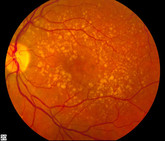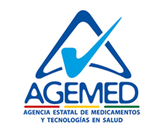Biosimilars
Biosimilars approved in Peru
In Peru, the regulatory body responsible for approving biological drugs is the General Directorate of Medicines, Supplies and Drugs (DIGEMID) of the Peruvian Ministry of Health (MINSA) which is in charge of leading the National and Decentralised Health System, the policy for the universal health assurance and the policies and intersectoral actions on social determinants [1].
EMA recommends approval of two adalimumab biosimilars
The European Medicines Agency’s (EMA) Committee for Medicinal Products for Human Use (CHMP) announced on 17 September 2021 that it had recommended granting marketing authorization for the adalimumab biosimilars Hukyndra and Libmyris.
New Zealand to expand access to rituximab, possibly adalimumab
New Zealand’s Pharmaceutical Management Agency, Pharmac, has announced a decision to expand access to rituximab and has launched a proposal to expand access to adalimumab.
Multiple successive switches between infliximab biosimilars in IBD
Recently, biosimilar tumour necrosis factor (TNF) antagonists have become available and are being increasingly used in treating inflammatory bowel diseases (IBD), Crohn’s disease (CD) and ulcerative colitis (UC). The first infliximab biosimilar to receive approval was CT-P13 (Remsima) based on data from rheumatoid arthritis and ankylosing spondylitis, followed by extrapolation to other indications of originator infliximab (Remicade). The second infliximab biosimilar, SB2 (Flixabi), received authorization based on a pharmacokinetic study in healthy volunteers and a study in rheumatoid arthritis [1].
Federal purchases of biological drugs for cancer in Brazil
Buying biosimilars is generally considered to be a way to increase access to cancer treatments in public health services. In Europe, the approval, commercialization and use of similar biotherapeutic products (SBPs) have been encouraged as a way to reduce costs and expand treatment coverage [1, 2]. In Brazil, an analysis of the profile of purchases of monoclonal antibodies (mAbs) acquired by the Unified Health System (SUS) between 2015 and 2019 showed that this premise might not be true in Brazil [2].
EC and FDA approval for first ranibizumab biosimilar Byooviz
On 18 August 2021, the ranibizumab biosimilar Byooviz (SB11), produced by Samsung Bioepis and commercialized by Biogen, received European Commission (EC) approval. Then on 20 September 2021 the pair announced that Byooviz had also received approval from the US Food and Drug Administration (FDA). This is the first ranibizumab biosimilar, or indeed ophthalmology biosimilar, to receive approval in either Europe or the US.
Biosimilars approved in Uruguay
In Uruguay, the regulatory body responsible for the approval of biologicals is the Ministry of Public Health of Uruguay (Ministerio de Salud Pública de Uruguay, MSP).
Long-term safety and efficacy of anti-TNF-α biosimilars in psoriasis
Biologicals have greatly improved treatment options and outcomes for patients with moderate-to severe psoriasis. Despite being significantly more effective than conventional systemic agents for psoriasis, the high cost of biologicals may limit their use [1].
Bevacizumab biosimilars launched in Spain and Korea
New bevacizumab biosimilars have been launched in Spain and South Korea.
Off-patent biologicals/Biomimics approved in Bolivia
In Bolivia, the regulatory body for the approval of biologicals is the State Agency for Medicines and Health Technologies AGEMED (Agencia Estatal de Medicamentos y Tecnologías en Salud).












